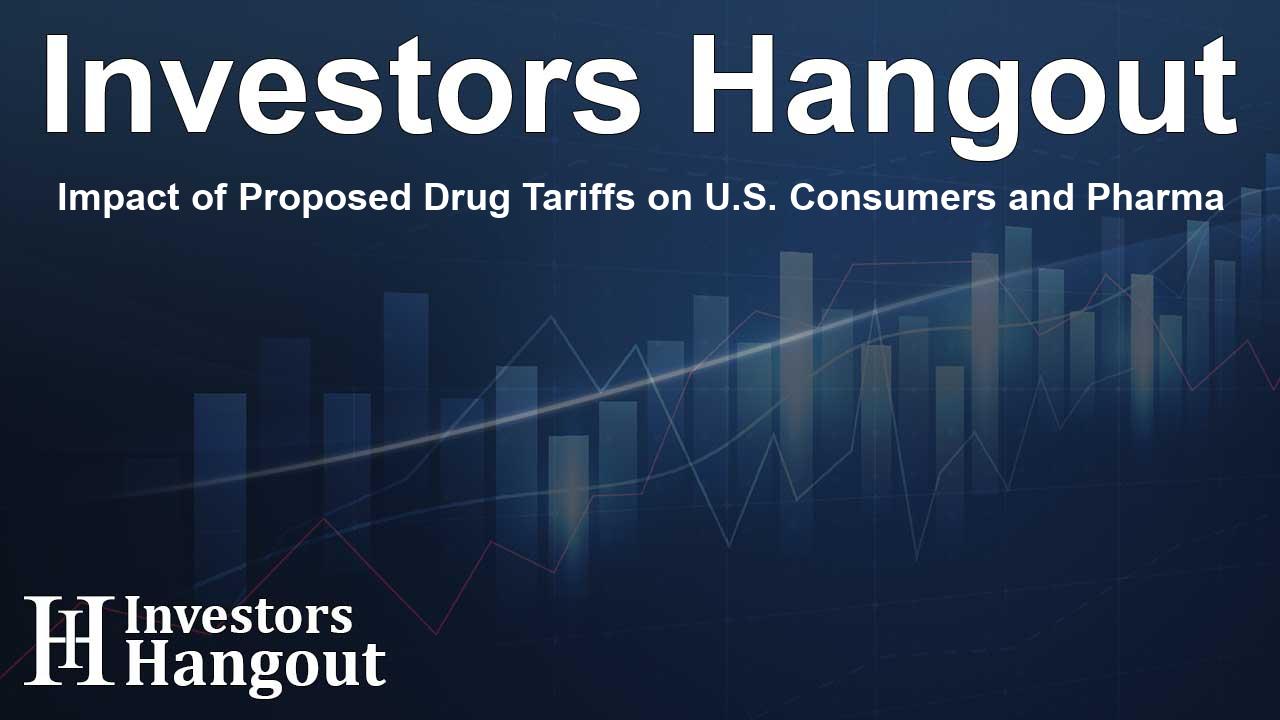Impact of Proposed Drug Tariffs on U.S. Consumers and Pharma

Proposed Drug Tariffs and Their Implications
President Donald Trump has made headlines with his proposal of 100% tariffs on pharmaceuticals. While this bold move aims to reinforce national interests, analysts believe that certain loopholes might limit its overall impact. Still, the discontent within the pharmaceutical industry, particularly among major companies, is palpable.
Understanding the Proposed Tariffs
The proposed tariffs are part of a Section 232 investigation, which examines whether medical products imported from regions such as China, Vietnam, and Malaysia threaten national security. Recent discussions indicate that this move may significantly influence both U.S. consumers and exporters within these countries.
Immediate Effects on Market Dynamics
According to analysts, notably Louise Loo from Oxford Economics, these drug tariffs could represent a substantial commercial hit for American consumers. The financial market has already started to react, with notable downturns in Asian markets being reported.
Market Reactions of Major Pharmaceutical Companies
Interestingly, some American pharmaceutical firms, including Pfizer Inc. (NYSE: PFE), Eli Lilly and Co (NYSE: LLY), and Bristol-Myers Squibb Co (NYSE: BMY), have seen an uptick in their share values despite the looming uncertainty created by the tariffs.
Limitations of the Proposed Tariffs
Even with the proposed tariffs, some loopholes could mitigate their impact. For instance, generic medications are not subject to these tariffs. Companies might also secure exemptions by demonstrating ongoing construction projects or investments in American manufacturing.
Potential Exemptions and Protections
Furthermore, firms based in countries like Japan and South Korea could benefit from trade protections, making it harder to fully enforce these tariffs. Analysts predict that the administration may introduce additional announcements aimed at lessening the pressure of tariffs on specific product categories.
Impacts on U.S. Pharmaceutical Manufacturing
Many pharmaceutical companies are now investing heavily in U.S. manufacturing, pledging approximately $350 billion toward this initiative this year. This commitment may enable these companies to expand their facilities, ultimately avoiding tariffs altogether and continuing to contribute positively to the American economy.
Industry Response and Concerns
The reaction from the pharmaceutical sector has been largely negative. Companies have been vocal about their dissatisfaction, emphasizing that tariffs threaten ongoing and planned investments in U.S. manufacturing and research and development. These significant financial commitments are under scrutiny, as every dollar that goes toward tariffs limits funds that could be utilized for developing advanced treatments.
The Broader Impact on U.S. Manufacturing
Beyond pharmaceuticals, the proposed tariffs also affect other sectors, like heavy trucks and household goods, aiming to bolster domestic production. However, the uncertainty surrounding these tariffs raises concerns about the long-term vision for American manufacturing overall.
Final Thoughts on Tariff Impacts
While the proposed drug tariffs signal a strong push toward protectionism, their implementation appears fraught with complexities. As key players in the pharmaceutical sector mobilize to adapt to changing market conditions, both consumers and investors will be closely watching the unfolding scenario. Continued dialogue and potential adjustments are likely as all parties navigate these tumultuous waters.
Frequently Asked Questions
What are the proposed drug tariffs?
The proposed drug tariffs are a 100% levy on pharmaceuticals aimed at protecting national interests.
How might these tariffs impact U.S. consumers?
The tariffs could raise drug prices, making medications more costly for average consumers.
What are the loopholes in the drug tariffs?
Some generic drugs are exempt, and companies Exhibit R&D can potentially avoid the tariffs.
How are major pharmaceutical companies reacting?
Major pharmaceutical companies are largely unhappy, expressing concerns over the tariffs jeopardizing their investments.
What is the potential outcome regarding these tariffs?
Trade protections and other regulatory adjustments may be introduced to reduce the tariffs' impact on specific products.
About The Author
Contact Logan Wright privately here. Or send an email with ATTN: Logan Wright as the subject to contact@investorshangout.com.
About Investors Hangout
Investors Hangout is a leading online stock forum for financial discussion and learning, offering a wide range of free tools and resources. It draws in traders of all levels, who exchange market knowledge, investigate trading tactics, and keep an eye on industry developments in real time. Featuring financial articles, stock message boards, quotes, charts, company profiles, and live news updates. Through cooperative learning and a wealth of informational resources, it helps users from novices creating their first portfolios to experts honing their techniques. Join Investors Hangout today: https://investorshangout.com/
The content of this article is based on factual, publicly available information and does not represent legal, financial, or investment advice. Investors Hangout does not offer financial advice, and the author is not a licensed financial advisor. Consult a qualified advisor before making any financial or investment decisions based on this article. This article should not be considered advice to purchase, sell, or hold any securities or other investments. If any of the material provided here is inaccurate, please contact us for corrections.
